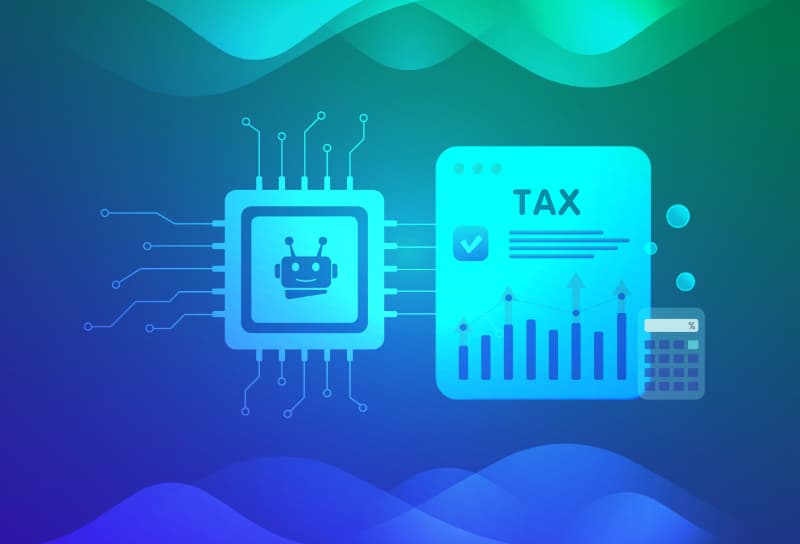HMRC Tax Investigations: Everything you need to know
In an ever-changing tax landscape, small to mid-sized businesses in the UK face increasing scrutiny from HM Revenue and Customs (HMRC). With a rise in investigations and the adoption of advanced technologies like artificial intelligence, understanding the intricacies of HMRC’s approach is more crucial than ever.
This article aims to demystify the process of tax investigations, offering insights into the types of investigations, recent trends, and how businesses can best prepare for this daunting experience.
Brief overview of HMRC tax investigations
 HM Revenue and Customs (HMRC) is the UK’s tax authority responsible for collecting taxes, administering benefits, and enforcing compliance. Tax investigations by HMRC are formal procedures where the tax authority examines the financial records of individuals and businesses to ensure that the correct amount of tax is being paid. These investigations can range from simple checks to more complex and in-depth inquiries.
HM Revenue and Customs (HMRC) is the UK’s tax authority responsible for collecting taxes, administering benefits, and enforcing compliance. Tax investigations by HMRC are formal procedures where the tax authority examines the financial records of individuals and businesses to ensure that the correct amount of tax is being paid. These investigations can range from simple checks to more complex and in-depth inquiries.
Importance for small to mid-sized UK businesses
For small to mid-sized businesses in the UK, an HMRC tax investigation can be a daunting experience. The process can be time-consuming, stressful, and potentially costly if discrepancies are found. Given the recent rise in the number of investigations, particularly targeting smaller enterprises, it’s crucial for business owners to understand what an HMRC investigation entails and how to prepare for one.
Types of HMRC investigations and recent trends
Understanding the landscape of HMRC investigations is crucial for businesses of all sizes. While larger corporations may be more familiar with Code of Practice 8 (COP8) and Code of Practice 9 (COP9) investigations, small to mid-sized businesses often face different types of scrutiny.
Aspect and full enquiries
Small businesses are commonly subject to either “Aspect” or “Full” enquiries. Aspect enquiries are more focused, often zeroing in on specific elements of a tax return, such as particular expenses or tax reliefs claimed. Full enquiries, on the other hand, are comprehensive and may involve a complete review of the tax return and the business records supporting it.
Compliance checks
Another form of investigation that small businesses should be aware of is “compliance checks.” These are not as intensive as full enquiries but are designed to ensure that your tax affairs are in order. These checks can be random or triggered by specific risk factors identified by HMRC.
COP8 & COP9 statistics for 2022-2023
HMRC’s Fraud Investigation Service (FIS) has been actively using Codes of Practice 8 and 9 to investigate tax compliance and fraud. The data for the financial year 2022 to 2023 provides valuable insights into the scale and focus of these investigations.
COP8 Investigations
- Total on Hand: 1,121
- Opened in Year: 674
- Closed: 545
- Interest (£m): 7.9
- Penalties (£m): 6.4
- Total Yield (£m): 72.4
COP9 Investigations
- Total on Hand: 2,181
- Opened in Year: 417
- Closed: 661
- Interest (£m): 8.1
- Penalties (£m): 14.8
- Total Yield (£m): 89.2
Implications for small to mid-sized businesses
The data shows a significant number of COP8 and COP9 investigations are ongoing, with hundreds opened and closed within the last financial year. The yield collected from these closed cases amounts to £72.4 million for COP8 and £89.2 million for COP9, including interest and penalties. This underscores the importance for businesses to be vigilant in their tax affairs, as HMRC is actively using these codes to investigate and reclaim lost tax revenue.
While the focus of COP8 and COP9 investigations is often on larger corporations or high-net-worth individuals, the increase in staffing and reclaimed amounts suggests that HMRC is becoming more aggressive in its efforts across the board. Small businesses contribute an estimated £13.4 billion to the tax gap, making them a likely target for increased scrutiny.
By understanding the types of investigations and being aware of the latest trends, small to mid-sized businesses can better prepare for the possibility of HMRC scrutiny.
The rise in HMRC investigations
Over the past couple of years, HMRC has been ramping up its efforts to ensure tax compliance, especially among small to mid-sized businesses. Recent statistics indicate a significant uptick in the number of investigations. For instance, HMRC’s investigations into individuals and small businesses raised a staggering £5.7 billion in the fiscal year 2021/22, marking a 54% increase from the previous year. This isn’t just a random occurrence; it’s part of a broader trend that’s been gaining momentum.
What’s behind the surge?
The government has been increasingly focused on closing the tax gap—the difference between the amount of tax that should be paid and what is actually collected. Small businesses and freelancers have found themselves under the microscope more than ever, with a 21% rise in investigations targeting this demographic. It’s clear that HMRC is casting a wider net, and no one is immune.
What triggers an investigation?
Understanding what might trigger an investigation can help you steer clear of unwanted attention from HMRC. Common triggers include significant fluctuations in income, inconsistencies between different tax returns, and late or incomplete submissions.
Preventive measures: What to watch out for
If you’re a small business owner, there are specific areas you should pay close attention to in order to minimise the risk of an investigation. Accurate record-keeping is your first line of defence. Make sure all transactions are documented and that you’re declaring all forms of income. Employing the services of a reputable accounting firm can also go a long way in ensuring that your tax affairs are in order.
 The investigation process
The investigation process
When HMRC decides to investigate a business, it’s not a process to be taken lightly. The investigation can be initiated in various ways, such as random selection, specific triggers, or even a tip-off. Once you’re on HMRC’s radar, the process unfolds in several stages, starting with an initial letter of inquiry. This is followed by a request for specific financial documents, which could range from bank statements to invoices and payroll records.
The depth of the investigation can vary. Some are relatively straightforward, requiring only basic documentation to verify the tax returns. Others can be more invasive, involving interviews and a thorough examination of your business operations. It’s a process that can last anywhere from a few months to several years, depending on the complexity and the level of cooperation from the business being investigated.
The key takeaway here is that an HMRC investigation is a serious matter that requires immediate attention and thorough preparation. Ignoring or delaying your response to HMRC’s inquiries can lead to penalties and further complications.
Data utilised by HMRC
In today’s digital age, HMRC has access to an unprecedented amount of data to aid in their investigations. They utilise around 55 billion items of data from various sources, including banks, property records, and even social media. This data-driven approach allows them to create a comprehensive profile of taxpayers, making it increasingly difficult to hide any discrepancies.
What’s more, HMRC employs advanced data analytics and artificial intelligence to sift through this massive amount of information. These technologies enable them to spot inconsistencies or anomalies that might warrant a closer look. For instance, if your lifestyle appears to be more lavish than what your declared income would suggest, that could raise a red flag.
For businesses, this means that the bar for meticulous record-keeping has been raised even higher. It’s not just about keeping your books in order; it’s about ensuring that all your financial activities are consistent across the board. This level of scrutiny may seem overwhelming, but it underscores the importance of having a robust accounting system in place.
Penalties and consequences
If you find yourself at the receiving end of an HMRC investigation and discrepancies are discovered, the consequences can be severe. Financial penalties are the most immediate concern. These can range from a percentage of the unpaid tax for minor errors, all the way up to 100% of the tax owed for serious cases of fraud or evasion.
But the repercussions don’t stop at financial penalties. A prolonged investigation can take a toll on your business operations. The time and resources spent on gathering records, attending interviews, and seeking legal advice can be disruptive. In extreme cases, criminal charges could be brought against the business owners, leading to potential imprisonment.
It’s not just about the here and now, either. An HMRC investigation can have long-lasting effects on your business reputation. Clients and suppliers may become wary of engaging with a business that has been under investigation, which can have a domino effect on your future dealings and growth prospects.
The gravity of these potential outcomes makes it imperative for businesses to take HMRC investigations seriously. It’s not just a matter of paying what you owe; it’s about protecting the integrity and longevity of your business.
How to prepare and respond
Being the subject of an HMRC investigation can be a nerve-wracking experience, but preparation and a proactive approach can make all the difference. The first step is to ensure that your financial records are in impeccable order. This includes not just your tax returns, but also invoices, bank statements, payroll records, and any other financial documents that could be scrutinised.
 If you receive that dreaded letter from HMRC, don’t panic. The worst thing you can do is ignore it. Respond promptly and consult with an accounting firm experienced in handling tax investigations. They can guide you through the process, helping you understand what documents you’ll need to provide and what questions you might have to answer.
If you receive that dreaded letter from HMRC, don’t panic. The worst thing you can do is ignore it. Respond promptly and consult with an accounting firm experienced in handling tax investigations. They can guide you through the process, helping you understand what documents you’ll need to provide and what questions you might have to answer.
Legal advice is also invaluable. Tax law is complex, and the stakes are high. A legal advisor can help you navigate the intricacies of the law and ensure that you’re taking the right steps to resolve the investigation as smoothly as possible.
Lastly, communication is key. Keep an open line with HMRC throughout the investigation. This not only helps in resolving issues more quickly but also shows that you’re committed to compliance, which could work in your favour.
New initiatives by HMRC
HMRC is continually evolving its methods and strategies for tax collection and compliance. One of the latest initiatives is the increased use of data analytics and artificial intelligence to identify potential cases for investigation. This means that HMRC is not just relying on traditional triggers but is also using predictive algorithms to identify high-risk taxpayers.
Another noteworthy development is the focus on sectors that are traditionally cash-heavy, such as hospitality and construction. HMRC is increasing audits in these sectors, aiming to clamp down on undeclared income and tax evasion.
Additionally, HMRC has been collaborating more closely with international tax authorities. With the advent of the Common Reporting Standard (CRS), information sharing between countries has become more streamlined, making it harder for businesses to hide income or assets abroad.
These initiatives indicate a more proactive and technologically advanced approach by HMRC, which has implications for how businesses should prepare for potential investigations. It’s a clear sign that HMRC is upping its game, and businesses need to do the same to stay ahead of the curve.

HMRC’s use of AI in tax investigations
In an era where data is king, HMRC is not lagging behind. The tax authority has embraced advanced technologies, including artificial intelligence (AI), to enhance its capabilities in identifying tax evasion and avoidance. One of the most notable tools in HMRC’s arsenal is the ‘Connect’ AI system.
What is ‘Connect’?
The ‘Connect’ system is a sophisticated AI tool that holds an astonishing 55 billion items of taxpayer data. It uses this data to create comprehensive profiles of taxpayers, both individuals and businesses. The system pulls in data from a myriad of sources, including but not limited to, financial institutions, property transactions, and even social media.
How does it work?
‘Connect’ employs advanced data analytics to sift through the massive amount of information it holds. By using predictive algorithms and pattern recognition, it can identify inconsistencies or anomalies in tax returns and financial activities. This allows HMRC to flag potential cases for further investigation, making the process more efficient and targeted.
Implications for small businesses
While the ‘Connect’ system is incredibly powerful, it’s not infallible. It’s crucial for small to mid-sized businesses to maintain meticulous records to ensure that their financial activities are consistent across the board. Any discrepancies, even if unintentional, could trigger the AI’s algorithms, leading to an unwanted investigation.
By understanding how HMRC utilises AI in its investigative processes, businesses can better prepare themselves for the digital age of tax compliance. It’s a clear sign that the tax landscape is evolving, and businesses must adapt to stay ahead of the curve.
Final thoughts
Navigating the complexities of an HMRC tax investigation can be a daunting task, especially for small to mid-sized businesses. The rise in investigations, coupled with HMRC’s increasingly sophisticated methods, makes it more important than ever to be proactive in managing your tax affairs. From understanding what triggers an investigation to keeping meticulous records and seeking expert advice, preparation is your best defence.
But it’s not just about avoiding penalties or navigating an investigation smoothly. It’s about safeguarding the integrity and future of your business. With HMRC’s new initiatives and technological advancements, the landscape of tax compliance is changing rapidly. Staying informed and prepared is not just a good business practice; it’s a necessity in today’s ever-evolving regulatory environment.
So, if you haven’t already, now is the time to consult with an accounting firm like TaxAgility that specialises in tax investigations to ensure that your business is compliant and prepared for any scrutiny that may come your way. After all, it’s better to be safe than sorry.
The Role of AI in Financial Forecasting
In the business realm, financial forecasting has always been the compass guiding business owners through the unpredictable sea of market dynamics. While traditional forecasting relied heavily on past data and human intuition, today’s forecasting methods have started incorporating a player that’s changing the game entirely – Artificial Intelligence (AI).
In this article we are going to explore how, with the advent of game changing AI, this paradigm is rapidly changing.
How AI is Revolutionising Financial Forecasting
 In an age where data is the new gold, AI has become the miner, extracting invaluable insights from vast mountains of information. The sheer volume of data available to businesses today is overwhelming. Yet, AI can sift through this data at incredible speeds, identifying patterns that would have been almost impossible to discern with human eyes alone.
In an age where data is the new gold, AI has become the miner, extracting invaluable insights from vast mountains of information. The sheer volume of data available to businesses today is overwhelming. Yet, AI can sift through this data at incredible speeds, identifying patterns that would have been almost impossible to discern with human eyes alone.
Take the stock market, for instance. Factors from global politics to local weather can influence its ebb and flow. AI analyses not just stock prices but news articles, social media sentiments, and more to predict stock movements.
Moreover, AI’s predictive power doesn’t just stop at recognizing patterns. It’s like having a financial crystal ball; it can spot potential anomalies or disruptions in the market, giving businesses a heads-up before a potential downturn.
Data-Driven Decisions
 In the world of finance, the mantra has always been “data is king.” However, the sheer volume of data generated today can be a double-edged sword. While it offers a treasure trove of insights, it also poses the challenge of deciphering this vast sea of numbers.
In the world of finance, the mantra has always been “data is king.” However, the sheer volume of data generated today can be a double-edged sword. While it offers a treasure trove of insights, it also poses the challenge of deciphering this vast sea of numbers.
This is where AI shines. Modern AI algorithms, especially those employing deep learning, have the capacity to analyse vast datasets—ranging from market indices and sales data to consumer behaviours and even sentiments expressed on social media. Let’s consider a hypothetical medium-sized tech company. By incorporating AI, this company could assess not only their sales figures but also customer reviews, feedback from tech forums, and discussions from recent industry conferences. AI combines these diverse data points to generate a comprehensive view of their market standing, offering insights on areas of improvement and potential innovation.
Predictive Power
Humans are inherently pattern-seeking creatures. We’ve relied on this ability for millennia, from tracking animal movements for hunting to observing star patterns for navigation. But today’s financial markets are incredibly complex, influenced by countless variables, many of which are interconnected in ways that are not immediately obvious.
AI’s predictive power comes from its ability to recognize patterns, trends, and anomalies at a scale and complexity that surpass human capabilities. For instance, an AI model might flag a potential market downturn by analysing a combination of factors such as a sudden dip in manufacturing data in one country, a political turmoil in another, and perhaps even trending topics on Twitter. These patterns could be easily overlooked by human analysts, either due to the subtlety of the signals or the overwhelming amount of noise in the data. Yet, for AI, these patterns emerge as clear signals, allowing businesses to be proactive rather than reactive.
Speed and Efficiency
Time is of the essence in financial forecasting. The faster insights can be generated, the quicker decisions can be made. Traditional data analysis methods, while effective to a point, can be painstakingly slow, often requiring days or even weeks to produce actionable results.
AI operates on a different time scale. With powerful computational capabilities and optimised algorithms, AI can churn through decades of financial data in mere minutes. This speed doesn’t just mean faster results—it means fresher insights. A retailer, for example, could use AI to analyse the day’s sales data across all their stores worldwide and adjust their strategies for the next day, ensuring they’re always one step ahead of market fluctuations.
Furthermore, as AI systems become more efficient, they can run these massive calculations using less energy and computational power, making them both cost-effective and environmentally friendly.
AI & Financial Forecasting: Key Takeaways
“In the rapidly evolving world of finance, AI stands as a beacon of transformative power. As businesses, especially SMBs, navigate the complexities of modern financial forecasting, the infusion of AI technologies offers unprecedented advantages. From real-time risk assessments to profound predictive insights, the AI-driven revolution is reshaping the financial landscape. Dive into these key takeaways to understand how accountants and businesses can harness this potent tool, making sense of numbers and patterns in ways previously unimaginable.”
The future of financial forecasting is not just about crunching numbers faster; it’s about extracting deeper insights with AI’s unparalleled processing capabilities.
In an AI-driven landscape, accountants are not just number crunchers but interpreters, strategists, and guides, steering businesses through financial complexities.
From Darktrace’s real-time response systems to open-source community-driven tools, AI is setting a new gold standard in fraud detection.
“With scaled solutions like Watson’s SMB tier and subscription-based platforms, even small businesses can now predict market trends with precision
Quantum-powered insights and intuitive dashboards allow businesses to anticipate financial risks and adapt strategies on the fly.
AI-driven financial tools in 2023 cater to everyone, including SMBs. With modular, scalable solutions and tiered pricing, AI is within reach for businesses of all sizes.
Harnessing AI’s potential isn’t a one-off event. Continuous learning and adaptation will define the businesses that thrive in this new financial frontier.
The Synergy of Accountants and AI
Accountants, with their meticulous nature and analytical prowess, when armed with AI, become financial superheroes. Imagine an accountant, previously reliant on spreadsheets and graphs, now having the ability to provide businesses with accurate forecasts that consider global economic shifts, industry trends, and even consumer sentiment.
For instance, an accountant working for a retail business can use AI to analyse customer reviews, social media chatter, and sales data to anticipate which products might become hits in the upcoming season. This isn’t just number crunching – it’s strategic foresight.
And the beauty of AI is its ability to learn continuously. Every financial quarter provides new data, and with each dataset, the AI becomes smarter, making future predictions even more accurate.
Enhanced Accuracy
 One of the mainstays of the accounting world has always been precision. Even a minor error in financial records can cascade into significant miscalculations, potentially affecting decisions at the highest level of an organisation.
One of the mainstays of the accounting world has always been precision. Even a minor error in financial records can cascade into significant miscalculations, potentially affecting decisions at the highest level of an organisation.
Enter AI. With its data processing capabilities, it ensures that vast datasets are scrutinised without any oversight. An accountant, no matter how diligent, can be prone to fatigue or human error, especially when sifting through massive amounts of data. By employing AI in tasks like data entry, transaction validation, or anomaly detection, the margin of error is drastically reduced.
But it’s not just about minimizing errors. AI also assists in precision forecasting. For instance, if an accountant wants to forecast the next quarter’s revenue for a company, AI can incorporate real-time data streams, like current sales, social media sentiment, and even external factors such as economic indicators, to refine the prediction. This means forecasts that previously relied solely on historical data and trend extrapolation now have a multitude of dynamic variables, resulting in a more accurate prediction.
Strategic Insights
Historically, accountants have been the custodians of a company’s financial health. But in an AI-augmented landscape, their role is evolving. They are becoming strategic advisors.
While AI handles the heavy lifting of data processing, it also surfaces patterns and insights that might not be apparent at a glance. For instance, an AI system could alert an accountant to the fact that every time there’s a surge in positive social media mentions, there’s a corresponding uptick in sales two weeks later. The accountant can then advise the marketing team to amplify positive engagements, potentially driving more sales.
This transition means accountants are not just reporting numbers; they are interpreting them, providing actionable business advice. In essence, AI allows accountants to weave a story from the data, offering insights on everything from product performance and customer preferences to potential market expansions.
Continuous Learning
One of the most remarkable aspects of AI is its ability to learn and adapt. Unlike traditional software that maintains a static function unless manually updated, AI systems, especially those using machine learning, evolve with each dataset they encounter.
For accountants, this means the predictions and insights offered by AI become sharper over time. Let’s say an AI system made a forecast about holiday sales that was slightly off mark. Given the right feedback mechanisms, the AI can analyse where it went wrong and adjust its algorithms. The next holiday season, it’ll consider these past mistakes, refining its predictions.
Moreover, as accountants interact with AI tools, the systems can also learn their preferences, priorities, and even the unique financial nuances of the industry they’re operating in. Over time, this results in a tailored AI assistant that’s uniquely optimised to support its human counterpart.
Technological Solutions for the Modern Accountant
As accountants move towards this AI-augmented future, there’s a plethora of tools awaiting them. Software like Kount and Darktrace use AI to prevent financial fraud by detecting anomalous transactions in real-time. On the forecasting front, platforms like IBM’s Watson offer predictive financial insights based on massive datasets.
But it’s not just about having powerful tools; it’s also about integration. Many of these AI-driven financial solutions can be seamlessly integrated with existing accounting software, ensuring that businesses don’t have to reinvent their financial wheel but can simply upgrade it.
AI-Driven Financial Software
The UK market has been at the forefront of fintech innovation. Here are some tailored solutions that have gained traction, especially in the cloud accounting world:
Xero: Although it has a global presence, Xero has a significant foothold in the UK. Its AI capabilities streamline tasks such as VAT returns, especially given the specifics of the UK tax system.
FreeAgent: UK-based and designed specifically for freelancers, small business owners, and their accountants, FreeAgent employs AI for tasks like automatic bank transaction categorization, making tax time less daunting.
Fluidly: Positioned as an “intelligent cashflow” tool, this UK start-up uses AI to predict future cash flows, helping businesses maintain a healthy financial stance.
Predictive Analytics Tools
UK-specific tools have been pivotal in helping businesses navigate the unique financial landscape:
Sage Business Cloud Accounting: A household name in the UK, Sage has incorporated AI-driven predictive analytics into its suite, assisting businesses in future-proofing their finances.
AccessPay: Based in Manchester, AccessPay uses AI to offer insights on cash flow forecasting and treasury management, catering specifically to the nuances of UK businesses.
DataRobot: While it’s a global entity, its solutions are tailored for various markets, including the UK. It offers a platform that automates the process of building accurate predictive models, a valuable tool for forward-thinking accountants.
Integration with Existing Systems
 Adopting new technology in the UK needs to consider existing systems and regulations:
Adopting new technology in the UK needs to consider existing systems and regulations:
Open Banking Initiatives: The UK’s open banking system allows secure data sharing between financial institutions. Many AI tools capitalise on this, integrating seamlessly with bank data to offer real-time insights.
API-First Approach: Most modern UK-based financial software solutions, such as FreeAgent or AccessPay, provide robust APIs. This ensures not only integration with other business tools but also compliance with UK-specific financial regulations and standards.
GDPR Considerations: AI tools designed for the UK market prioritise GDPR compliance. When integrating new systems, data privacy and protection are paramount, and these tools are tailored to ensure adherence to these regulations.
Preparing for the AI-Driven Financial Future
As we stand on the cusp of this AI revolution, businesses must be prepared. This isn’t just about buying the latest software but about cultivating a culture of continuous learning. As AI evolves, the tools and insights it offers will too.
Accountants, traditionally seen as number guardians, will now play a pivotal role as strategic advisors, guiding businesses through the intricate dance of market dynamics with AI as their partner.
The March of Progress
The finance sector, like so many others, is in the throes of an AI revolution. In the future, the question won’t be whether a company uses AI in its financial operations but how well it does so. The UK, with its robust fintech scene, is poised at the forefront of this change. So, how can UK businesses stay not just relevant but ahead in this evolving landscape?
Adopt Early, Adapt Continuously
Businesses that stand to gain the most from AI are not necessarily the earliest adopters but the most adaptable ones. The AI landscape is dynamic, with newer algorithms and tools emerging regularly. By staying abreast of these changes and being willing to evolve their practices, businesses can harness the full potential of AI.
Invest in Training
An AI tool is only as potent as the hands wielding it. It’s imperative for businesses to invest in training their staff, not just at the onset of implementing an AI tool but continually. Many UK-based AI solutions offer comprehensive training modules, webinars, and even one-on-one sessions. Leveraging these resources can make the difference between a successful AI integration and a wasted investment.
Collaborate with Experts
Sometimes, in-house training might not suffice, especially with the rapid advancements in AI tech. Here, businesses can benefit from collaborations. This might mean hiring AI specialists, partnering with AI-focused firms, or even short-term collaborations with industry experts to understand and harness the latest in AI.
Data is King, Quality is Queen
At the heart of AI’s power is data. But sheer volume isn’t enough. The quality of data fed into AI systems dictates the accuracy of insights derived. Regular audits, ensuring data integrity, and understanding the sources of data are critical. Especially in the UK, with its strict data protection regulations, businesses need to be doubly cautious about the data they harness.
Prepare for a Cultural Shift
Integrating AI is not just a technical shift; it’s a cultural one. A business might face resistance from staff wary of AI or from stakeholders uncertain about its ROI. Addressing these concerns, fostering an environment of learning, and emphasising AI as a tool — not a replacement — can smoothen this transition.
The Continuous Journey of Learning and Adapting
The AI landscape is ever-evolving. But therein lies its beauty. It’s not a one-off solution but a continuous journey. The businesses that will truly thrive in an AI-centric financial future are those that see it not as a destination but a journey. A journey of constant learning, adapting, and evolving.
The Future of Financial Forecasting with AI
 In wrapping up, it’s evident that AI isn’t just a fancy tool; it’s set to redefine the very fabric of financial forecasting. As businesses, big and small, navigate the complex waters of the global market, AI stands as a beacon, illuminating the path ahead. And in this journey, accountants aren’t just passive passengers but the captains, steering the ship towards uncharted but promising territories.
In wrapping up, it’s evident that AI isn’t just a fancy tool; it’s set to redefine the very fabric of financial forecasting. As businesses, big and small, navigate the complex waters of the global market, AI stands as a beacon, illuminating the path ahead. And in this journey, accountants aren’t just passive passengers but the captains, steering the ship towards uncharted but promising territories.
Charting the New Frontier
The transformative role of AI in financial forecasting is not just an emerging trend; it’s the new reality. We stand at the crossroads of a paradigm shift, where traditional financial processes merge with the cutting-edge capabilities of AI, ushering in a future brimming with potential.
From Numbers to Nuances
While numbers have always been the bedrock of financial forecasting, AI introduces a layer of depth. It’s not just about crunching numbers faster; it’s about extracting insights, predicting trends, and identifying anomalies that might escape even the most astute human eye. By processing vast amounts of data in real-time, AI tools empower businesses to anticipate market movements, adapt strategies, and make data-driven decisions with unprecedented accuracy.
Accountants: The Navigators of this Brave New World
In this AI-driven landscape, accountants play an even more crucial role. They’re not just number crunchers but interpreters, strategists, and, most importantly, guides. By harnessing AI’s capabilities, accountants can elevate their value proposition. They move from merely presenting financial data to offering strategic insights, from historical analysis to predictive forecasting, and from reactive problem-solving to proactive strategy formulation.
Harnessing the AI Wave
It’s clear that AI’s wave is transformative, but like any powerful tool, its true potential is unlocked when wielded with expertise. This is where accountants shine. Their unique combination of financial acumen and AI tool mastery positions them to offer unparalleled value to businesses. By embracing AI, accountants can guide businesses through the complexities of today’s financial landscape, ensuring they’re not just surviving but thriving.
A Shared Journey into the Future
As we gaze into the horizon, one thing is evident: the journey of financial forecasting is a shared one. AI tools provide the horsepower, but it’s the human touch, the expertise of accountants, that steers the direction. Together, they’re set to redefine the future of financial forecasting, creating a landscape where precision, foresight, and strategy converge.

